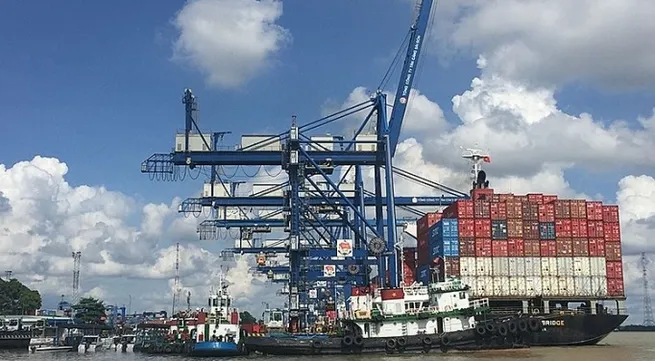EVFTA and opportunities for maritime transport

Commitments in the EVFTA were assessed to help enterprises that provide maritime shipping services to expand their market scale as well as create favourable conditions for them to effectively implement services. The EU is currently one of Vietnam’s leading trade partners with two-way export and import turnover of US$56.45 billion in 2019, including US$30.31 billion for export and import turnover by sea (accounting for 54%).
The EVFTA is also expected to increase Vietnam’s exports to the EU by over 40% and imports from the EU by 35% in 2025. With exports and imports seeing higher growth, the logistics market has been expanding further, especially in maritime shipping.
On the other hand, the EU is also a market that provides high-quality means of transport, machinery, equipment and technology for logistics activities. Vietnam's commitments one liminating tariffs on vehicles and equipment imported from the EU will offer opportunities for maritime transportation businesses to save investment costs in infrastructure and improve their technological capacity.
In addition, the opening of the maritime shipping service market under the EVFTA will promote EU logistics companies to invest in Vietnam while helping domestic enterprises to develop further in the near future.
However, according to experts, the EVFTA also puts Vietnamese maritime businesses in the face of significant challenges. EU service providers are very strong in the logistics sector, with many multinational companies and large modern fleets accounting for a significant market share in the world. Meanwhile, the gap in development between EU and Vietnamese logistics enterprises will create even fiercer competition.
On the other hand, the EU market always requires high service quality while also having indirect legal constraints (on entry and nationality of workers); therefore, it is not easy for Vietnamese businesses to meet the standards set by this market.
Experts recommended that in order to take full advantage of EVFTA’s opportunities and overcome existing challenges, Vietnamese maritime enterprises need to actively improve their competitiveness through the building of long-term and methodical plans. They should also raise their capacity through the application of science and technology as well as study and apply successful models in preparation for facing competitive pressure.
It is crucial to proactively enhance cooperation and connection to improve their strength; and create a service supply chain from business linkages. In particular, the maritime transportation enterprises should fully understand the commitments on opening logistics services under the EVFTA to identify new risks in competition with those from the EU while clearly and correctly understanding the contents of the EVFTA's commitments to access the market.





